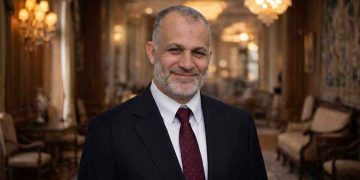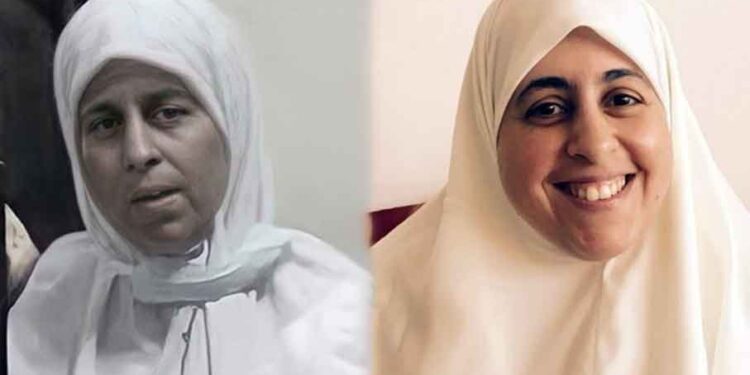Hoda Abdelmoniem, 61 years-old, and Aisha el-Shater, 39 years-old, appeared in a session of Egypt’s Supreme State Security Court on Monday (13 September), both showing signs of fatigue, medical negligence, and the cruelty of the prison system.
They were arrested on 1 November 2018, accused with nine others of being members of a proscribed group and “receiving funding from abroad”. Since then, their detentions have been repeatedly renewed, despite their deteriorating health due to prison conditions, including medical neglect.
On Monday, the court postponed the trial of the two women, both activists with Egyptian Coordination for Rights and Freedoms (ECRF), until 11 October. Their case is No. 1552.
This was the second session of the case against ECRF members, one which includes Ezzat Ghoneim, lawyer and former member of the National Council for Human Rights (NCRH), and Mohamed Abu Huraira, a human rights lawyer and Executive Director of the ECRF. Abu Huraira is Aisha el-Shater’s husband.
Case No. 1552 includes 31 defendants, 14 of whom are currently imprisoned. The prosecutor charged all defendants with supporting, joining, financing, and leading the Muslim Brotherhood, with further charges for four of the defendants for exposing human rights violations through the ECRF’s social media accounts.
The prosecution accused those four individuals of “deliberately broadcasting, at home and abroad, false news about the country’s domestic conditions through the ECRF’s Facebook, Twitter, and Youtube official accounts (…) This harms the prestige of the state, disturbs public order, spreads fear amongst the people, and harms public and national interests.”
Hoda Abdelmoniem was transferred to and from the court in an ambulance, since she suffers from serious kidney problems, as worsened through medical neglect.
Jurists circulated a photo of an emaciated el-Shater, described as “shocking”, during her presentation to the court.
Due to the consequences of that neglect, the daughter of el-Shater did not recognize her own mother in the session, and refused to believe that it was her.
El-Shater’s situation has been referenced in numerous human rights groups’ reports. Despite suffering from anemia and spinal injuries, she has been held in solitary confinement in al-Qanater prison since November 2018. Those reports have stressed that her life is in danger as a result.
Those four members of the ECRF have been held in open-ended, prolonged pretrial detention for almost three years, in violation of laws prohibiting such detention for more than two. Since their arrest in March and October 2018, they have been subjected to numerous violations, as documented by both Egyptian and international human rights organisations, including United Nations (UN) bodies.
Such prisoners of conscience continue to suffer from medical neglect in detention centers across Egypt, which do not meet minimum international standards of conditions. According to a statement by the Arab Organisation for Human Rights in the UK (AOHR UK), prisoners suffer from overcrowding, poor malnutrition, lack of hygiene, a lack of ventilation and lighting, and even insect infestations.
AOHR UK has repeatedly warned against the Egyptian authorities’ “indifference” to prisoners’ lives, despite the fact that international treaties and laws establish governments’ responsibility for detainees’ well-being, especially during pandemics.
Since President Abdel Fattah Al-Sisi assumed power, the Egyptian authorities have waged an unprecedented crackdown on dissidents and critics, making 1000s of politically motivated arrests. Many of those arrested have been convicted and sentenced in unfair trials, or held without trial – sometimes for years – on baseless terrorism-related charges, typically in appalling conditions.






























